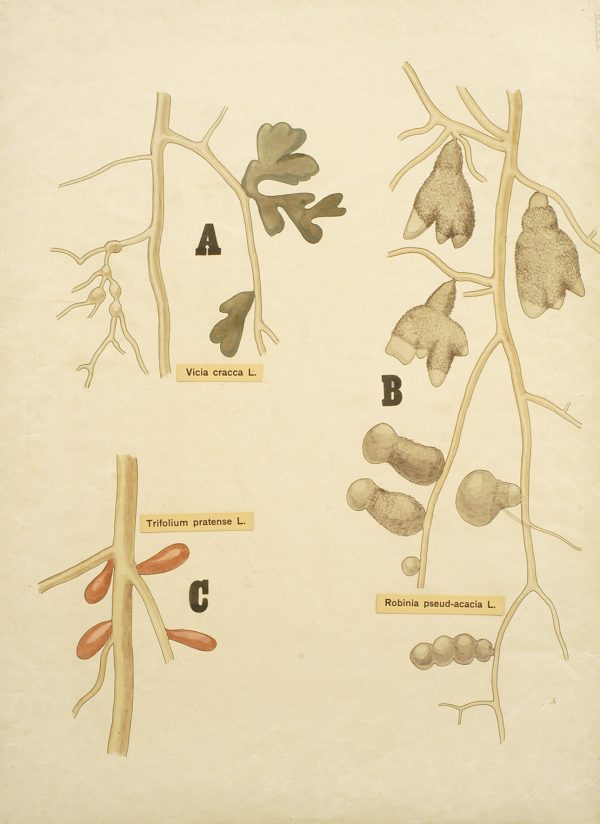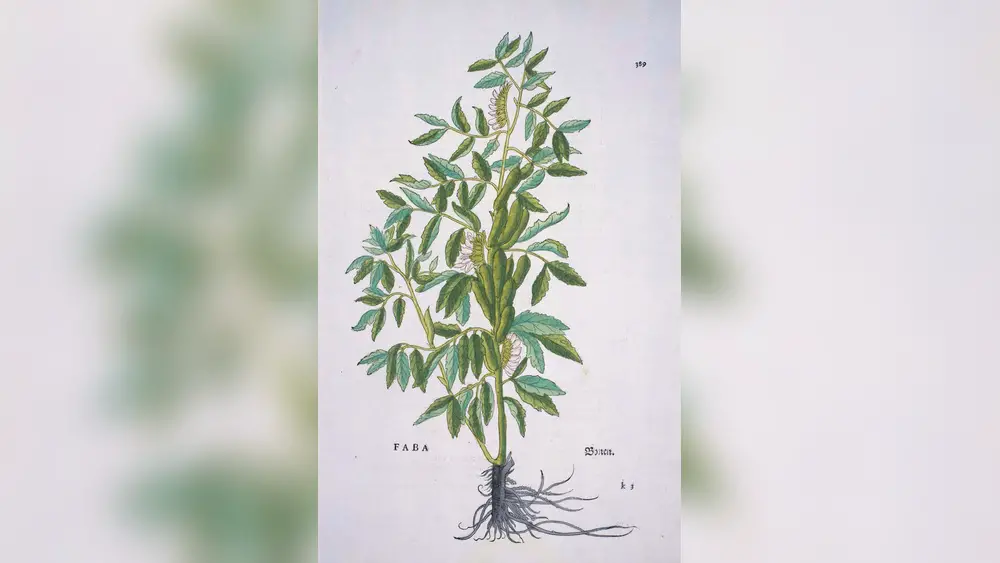Are you looking to boost your North Florida garden’s health naturally? Introducing the best nitrogen-fixing plants can transform your soil and reduce your need for chemical fertilizers.
These plants work with helpful bacteria to capture nitrogen from the air and enrich your soil, giving your garden a powerful, sustainable nutrient boost. Whether you want vibrant flowers, lush groundcovers, or hardy shrubs, there’s a nitrogen fixer perfect for your yard.
Keep reading to discover which native plants thrive in North Florida and how they can make your garden greener and more productive than ever before.
Native Nitrogen Fixing Plants
Native nitrogen fixing plants play a key role in North Florida’s ecosystems. They naturally improve soil by adding nitrogen, a vital nutrient for plant growth. These plants host bacteria that convert nitrogen from the air into forms plants can use. This process boosts soil health without chemical fertilizers.
Choosing native nitrogen fixers helps maintain the local environment. They are adapted to North Florida’s climate and soil. These plants support wildlife and pollinators, adding beauty to your garden while enriching the earth.
Spurred Butterfly Pea
The Spurred Butterfly Pea (Centrosema virginianum) is a vining plant native to North Florida. It climbs over fences and shrubs, producing attractive purple-blue flowers. This plant fixes nitrogen in the soil, improving fertility naturally. It grows well in sandy, well-drained soils common in the region.
Partridge Pea
Partridge Pea (Chamaecrista fasciculata) is a bright annual with yellow flowers that attract pollinators. It reseeds itself easily each year, making it low maintenance. This plant adds nitrogen to the soil and supports local bees and butterflies. It thrives in sunny spots and dry soils.
Wax Myrtle
Wax Myrtle (Myrica cerifera) is a fast-growing evergreen shrub or small tree. It produces nitrogen-rich biomass that enriches the soil as it grows. This native plant offers shelter for birds and wildlife. Wax Myrtle adapts well to varied soil types and tolerates coastal conditions.
Perennial Peanut
Perennial Peanut (Arachis glabrata) is a durable groundcover native to Florida. It fixes nitrogen and reduces the need for fertilizers. This plant tolerates sandy and coastal soils, making it ideal for North Florida gardens. Its dense growth helps prevent soil erosion.
Mimosa
Mimosa (Mimosa strigillosa) is a low-growing native groundcover with delicate feathery leaves and pink flowers. It fixes nitrogen and spreads to cover bare soil quickly. This plant attracts pollinators and adds color to landscapes. Mimosa thrives in sunny areas with well-drained soil.

Credit: www.reddit.com
How Nitrogen Fixers Work
Nitrogen is essential for plant growth. Most plants cannot use nitrogen gas from the air directly. Nitrogen-fixing plants solve this problem naturally. They work with special bacteria that live on their roots. These bacteria capture nitrogen from the air and turn it into a form plants can absorb.
The process starts with bacteria forming small nodules on the plant roots. Inside these nodules, bacteria convert nitrogen gas into ammonia. Plants absorb this ammonia and use it to build leaves, stems, and roots. In exchange, the plant sends sugars to the bacteria as food.
When nitrogen-fixing plants die or drop leaves, they add nitrogen-rich matter to the soil. This enriches the soil and helps nearby plants grow better. This natural cycle reduces the need for chemical fertilizers.
Symbiotic Relationship Between Plants And Bacteria
The relationship between nitrogen-fixing plants and bacteria is called symbiosis. Both partners benefit from this close connection. The plant provides shelter and food for the bacteria. The bacteria supply the plant with usable nitrogen. This teamwork improves soil fertility over time.
Role Of Root Nodules
Root nodules are small bumps on the plant roots. They house the nitrogen-fixing bacteria safely. Inside these nodules, bacteria convert nitrogen gas into ammonia. This is the key step that makes nitrogen available to plants. Healthy nodules mean better nitrogen fixation.
Impact On Soil Health In North Florida
Nitrogen-fixing plants improve soil health by increasing nitrogen levels. This is especially helpful in North Florida’s sandy soils. The added nitrogen boosts plant growth and soil life. It also helps prevent soil erosion by supporting strong plant roots.
Benefits For Florida Gardens
Nitrogen fixing plants offer many benefits for Florida gardens. These plants help improve soil health naturally. They support other plants by adding essential nutrients. Gardens with nitrogen fixers can grow stronger and healthier. They create a balanced ecosystem that supports wildlife and plants alike.
Soil Improvement
Nitrogen fixing plants add nitrogen to the soil. Nitrogen is a key nutrient for plant growth. These plants host bacteria that convert air nitrogen into a usable form. This process enriches the soil without chemical fertilizers. Over time, soil becomes more fertile and loose. Healthier soil means better water retention and root growth.
Pioneer Plant Role
Some nitrogen fixers act as pioneer plants. They grow quickly in poor or disturbed soils. These plants prepare the ground for other plants to grow. They create shade and reduce soil erosion. Their fallen leaves add organic matter to the soil. This helps create a better environment for future plants.
Pollinator Support
Many nitrogen fixing plants have flowers that attract pollinators. Bees, butterflies, and other insects visit these plants for nectar. Pollinators help improve fruit and seed production in gardens. A garden with pollinators is more productive and lively. These plants support local biodiversity and wildlife health.

Credit: www.floridamuseum.ufl.edu
Choosing Plants For North Florida
Choosing the right nitrogen fixing plants for North Florida helps improve soil health and garden productivity. These plants add nitrogen naturally, reducing the need for synthetic fertilizers. Selecting suitable plants depends on local soil, climate, and your garden goals.
Soil And Climate Compatibility
North Florida has sandy, well-drained soils with moderate acidity. Choose plants that thrive in these conditions to ensure success. Plants like Perennial Peanut and Mimosa tolerate sandy soils well. The warm, humid climate supports many native nitrogen fixers.
Check if a plant can handle occasional dry spells and mild frosts. Native species are often best adapted to local weather. This reduces plant stress and keeps the nitrogen cycle active.
Growth Habits
Growth habits affect how plants fit in your garden space. Vining plants like Spurred Butterfly Pea climb structures or spread over the ground. Low-growing groundcovers such as Mimosa provide soil cover and reduce erosion.
Shrubs and small trees like Wax Myrtle add height and biomass. Consider how fast a plant grows and how much space it needs. This helps avoid overcrowding and competition with other plants.
Maintenance Needs
Maintenance varies widely among nitrogen fixing plants. Some require little care once established, like Perennial Peanut. Others may need occasional pruning or watering during dry periods.
Choose plants that match your available time and effort. Low-maintenance species save time and reduce garden work. Regularly removing old plant material boosts nitrogen release into the soil.
Incorporating Nitrogen Fixers In Landscapes
Incorporating nitrogen-fixing plants into North Florida landscapes improves soil naturally. These plants capture nitrogen from the air and add it to the soil. This process reduces the need for chemical fertilizers. Nitrogen fixers also support healthy plant growth and biodiversity. Using them wisely enhances garden productivity and soil health.
Food Forest Integration
Nitrogen-fixing plants fit well in food forests. They grow alongside fruit trees and vegetables. These plants provide natural fertilizer to neighboring crops. Their roots improve soil structure and nutrient content. Including species like Wax Myrtle or Partridge Pea boosts overall forest health. They create a balanced ecosystem that supports many plants.
Groundcover Uses
Groundcover nitrogen fixers protect the soil surface. Plants like Perennial Peanut and Mimosa spread quickly and cover bare soil. This coverage prevents weeds from taking hold. It also reduces water evaporation and keeps soil cool. Their nitrogen-rich leaves improve soil fertility as they decay. Groundcovers are a practical way to enhance soil in lawns and gardens.
Erosion Control
Nitrogen-fixing plants help control erosion on slopes and banks. Their roots hold soil firmly in place during heavy rains. Fast-growing species like Spurred Butterfly Pea stabilize vulnerable areas. These plants reduce runoff and keep soil nutrients from washing away. Using nitrogen fixers for erosion control supports healthier landscapes and cleaner waterways.

Credit: hydrangeasblue.com
Tips For Maximizing Soil Health
Maintaining soil health is key for growing strong plants and a thriving garden. Nitrogen fixing plants improve soil by adding natural nutrients. Using smart gardening methods boosts these benefits. These tips help make soil rich and fertile for North Florida gardens.
Chop And Drop Technique
This method involves cutting nitrogen fixing plants and leaving the cuttings on the soil surface. The plant material breaks down and adds nutrients directly into the soil. It improves soil moisture and reduces weeds. This simple step returns nitrogen and organic matter back to the earth.
Companion Planting
Plant nitrogen fixers near other crops to support growth. They supply nearby plants with nitrogen naturally. This reduces the need for chemical fertilizers. Choose plants that grow well together to create a balanced garden ecosystem. Companion planting helps control pests and improve soil structure too.
Fertilizer Reduction
Using nitrogen fixing plants cuts down the need for synthetic fertilizers. These plants convert air nitrogen into a form plants can use. This lowers garden costs and lessens chemical runoff into waterways. Healthy soil from nitrogen fixers supports long-term plant growth without heavy fertilizer use.
Frequently Asked Questions
What Is The Native Nitrogen Fixer In Florida?
Native nitrogen fixers in Florida include Spurred Butterfly Pea, Partridge Pea, Wax Myrtle, Perennial Peanut, and Mimosa. These plants enrich soil by converting atmospheric nitrogen into usable forms, improving soil health and supporting local ecosystems naturally.
Which Plant Fixs The Highest Nitrogen?
The Perennial Peanut (Arachis glabrata) fixes the highest nitrogen among Florida-native plants. It enriches soil and reduces fertilizer use.
What Is The Best Nitrogen Fixer Plant?
The best nitrogen fixer plants include Spurred Butterfly Pea, Partridge Pea, Wax Myrtle, Perennial Peanut, and Mimosa. These native legumes enrich soil naturally.
What Is The Fastest Growing Nitrogen-fixing Tree?
The fastest growing nitrogen-fixing tree is the Wax Myrtle (Myrica cerifera). It quickly enriches soil with nitrogen and biomass.
Conclusion
Choosing the right nitrogen-fixing plants boosts soil health in North Florida. Plants like Spurred Butterfly Pea and Partridge Pea add nitrogen naturally. Wax Myrtle and Perennial Peanut grow well in sandy soils. Mimosa offers groundcover with beautiful pink flowers. These plants reduce fertilizer needs and support local pollinators.
Use them to improve your garden’s growth and sustainability. Healthy soil means stronger plants and a greener yard. Try these native nitrogen fixers for lasting benefits today.

